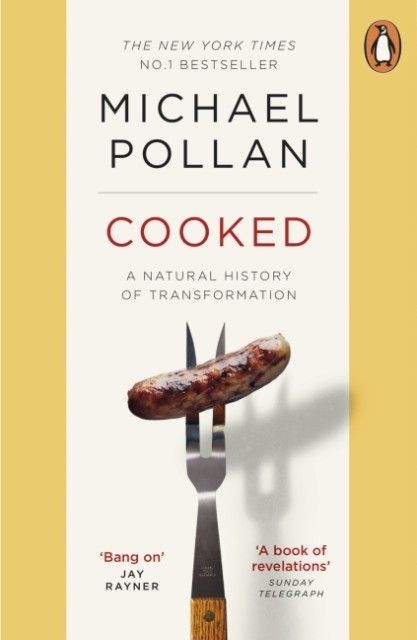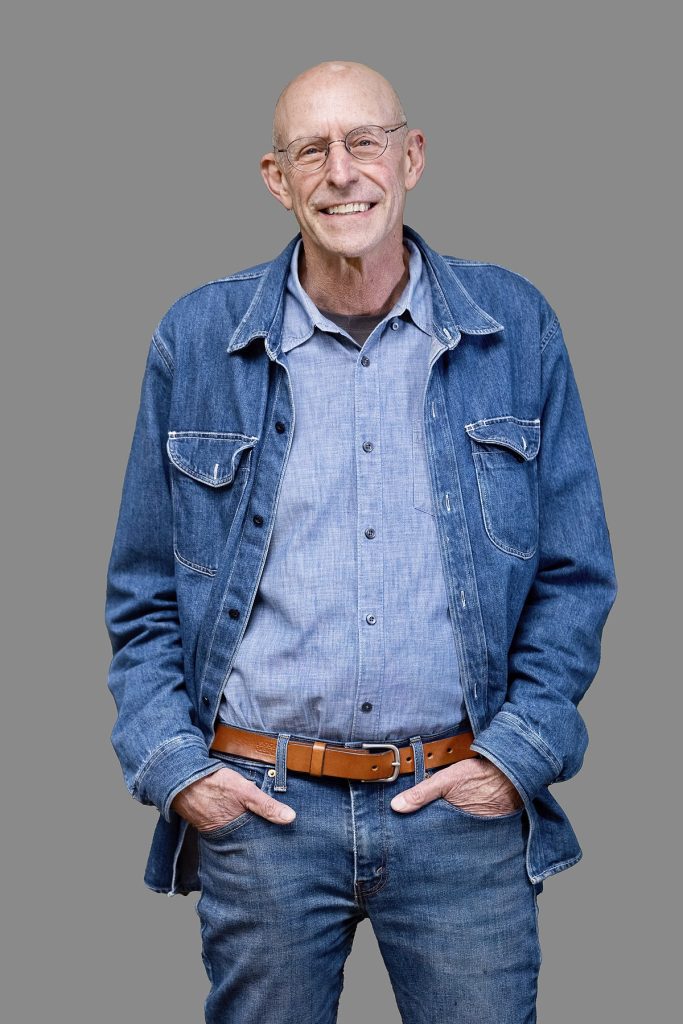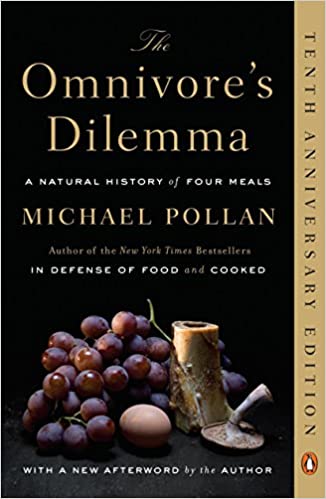
08 Feb ART 723-research- Prof. Michael Pollan- His philosophy and way of life

Michael Kevin Pollan is an American writer and journalist who is currently a Professor of Non-Fiction Practice and the first Lewis K. Chan Art Lecturer at Harvard University. At the same time, he is the Knight Professor of Science and Environmental Journalism and the director of the Knight Program in Science and Environmental Journalism at the UC Berkeley Graduate School of Journalism, where in 2020 he co-founded the UC Berkeley Center for the Science of Psychedelics, where he runs the public education program. Pollan is best known for his books that explore the sociocultural impact of food, such as The Botany of Desire and The Omnivore’s Dilemma.

In The Omnivore’s Dilemma, Pollan’s discussion of the industrial food chain is largely a critique of modern agribusiness. According to the book, agribusiness has lost touch with natural agricultural cycles where livestock and crops intertwine in mutually beneficial circles. Pollan’s critique of modern agribusiness focuses on what he describes as the misuse of corn for purposes ranging from fattening cattle to the mass production of corn oil, high fructose corn syrup, and other corn derivatives. He describes what he considers to be inefficient and other disadvantages of factory farming, and gives his assessment of organic food production and what it is like to hunt and gather food. Washington politicians, U.S. Department of Agriculture bureaucrats, Wall Street capitalists, and agricultural conglomerates such as Archer Daniels Midland) blame what he calls a destructive and insecure farming system that has wreaked havoc on American diets, nutrition, and well-being. Pollan finds hope in Joel Salatin’s Polyface Farm in Virginia, which she sees as a model of sustainability for commercial farming. Pollan appears in the documentary King Corn
Pollana’s book In Defense of Food: An Eater’s Manifesto, published on January 1, 2008, explores the relationship between what she calls dietism and the Western diet, with a focus on late 20th-century nutritional advice from the scientific community. Pollan maintains that eating fat and cholesterol in the diet does not lead to a higher rate of coronary artery disease and that reductive analysis of food for nutrients is a mistake.
Throughout the book, Pollan challenges the notion that the purpose of eating is to promote health, pointing out that such an attitude is not common, and that cultures that see food as aimed at pleasure, identity, and socialization can provide better health. It clears up this apparent paradox by testing and then confirming the notion that dietetics, and thus the entire Western concept through which we intellectualize the value of food, is more a religious and fanciful rendering of the mythology of simple solutions than the convincing and credible conclusion of irrefutable scientific research.
Pollan spends the rest of his book explaining his first three phrases: “Eat your food. Not too much. Mainly plants. He argues that most of what Americans now buy in supermarkets, fast food stores, and restaurants are not actually food, and the practice guideline is to only eat what people of his grandmother’s generation would consider food.
In Cooked: A Natural History of Transformation, published in 2013, Pollan explores the methods by which cooks mediate “between nature and culture.” The book is divided into four sections corresponding to the classic elements of Fire (hot cooking), Water (stewing and cooking in pots), Air (bread baking), and Earth (fermentation). The book also stars Samin Nosrat, who later became known for his best-selling cookbook Salt, Fat, Acid, Heat, and as “the chef who taught Michael Pollan to cook.” The 2016 Netflix documentary series created by Alex Gibney is based on the book, starring Michael Pollan and Isaac Pollan.

Pollan is a New York Times contributor and former editor-in-chief of Harper’s magazine. His first book, Second Nature: A Gardener’s Education, was published in 1991.
Pollan contributed to Greater Good, a social psychology magazine published by the Greater Good Science Center at the University of California, Berkeley. His article “Edible Ethics” discusses the intersection of ethical eating and social psychology.
In his 1998 book, A Place of My Own: The Education of an Amateur Builder, Pollan methodically traced the design and construction of the outbuilding he writes about. The 2008 re-release of this book was titled A Place of My Own: The Architecture of Daydreams.
Pollan wrote and narrated the audiobook Caffeine: How Caffeine Created the Modern World for Audible.com
In 2014, Pollan wrote the foreword to the healthy eating cookbook The Pollan Family Table. The book is co-written by his mother, Corky Pollan, and sisters, Lori Pollan, Dana Pollan, and Tracy Pollan.
Pollan also starred in the documentary Food, Inc. (2008), where he was also a consultant. In 2010, Pollan was interviewed for the film Queen of the Sun: What are the bees telling us? , a feature-length documentary about honey bees and colony collapse. He was also interviewed for Vanishing of the Bees, a documentary also about the fall of the colony, directed by Maryam Henein and George Langworthy. In 2015, a documentary version of Pollan’s book In Defense of Food premiered on PBS. In 2016, Netflix released a four-part documentary series based on Pollana’s book Cooked (2013), directed by Alex Gibney.
Since November 2022, he has been teaching a subscription online MasterClass course on Intentional Eating.
In 2015, Pollan received the Washburn Award from the Boston Museum of Science, given annually to “an individual who has made an outstanding contribution to the public understanding and appreciation of science and the vital role it plays in our lives” and was named as a Fellow at the Radcliffe Institute for Advanced Studies at Harvard University.
In 2016, Pollan received an honorary doctorate from the Academy of Gastronomic Sciences
He also won the James Beard Leadership Award, the Reuters World Conservation Union Global Awards for Environmental Journalism, the 2003 James Beard Foundation Award for Best Magazine Series, and the Genesis Award from the Humane Society of the United States. His articles have been anthologized in Best American Science Writing (2004), Best American Essays (1990 and 2003), The Animals: Practicing Complexity (2006), and Norton Book of Nature Writing (1990). In 2008, Pollan received the Washington University’s International Humanities Medal.
In the journal of the American Enterprise Institute, Blake Hurst argues that Pollan offers a superficial assessment of factory farming that does not take into account costs. Daniel Engber criticized Pollan in Slate for arguing that food is too complex a topic to be studied scientifically and blaming reductionism for today’s health diseases while using nutritional research to substantiate his own dietary advice. Engber likened Pollan’s “anti-science method” to the rhetoric used by health gurus who sell diet hoaxes.
Pollan’s work has also been discussed and criticized by Jonathan Safran Foer in his non-fiction book Eating Animals. Foer criticizes Pollan’s argument about table fellowship. According to Foera, Pollan argues that a vegetarian dinner guest causes socially reprehensible inconvenience to the host. Foer replies that in 2010, it will be easier for hosts to accommodate vegetarians than locals, as hosts will have to do extensive research to find (expensive) non-industrial meat.
Pollan has been accused by Jon Entine, who supports GMOs (genetically modified organisms), of using his influence to promote “junk science against GMOs.” Many scientists and journalists have similarly characterized Pollan’s work as biased against GMOs. For example, after Pollan tweeted that was critical of a New York Times article on GMOs, U.C. Berkeley biologist Michael Eisen tweeted that he called Pollan’s comment “a new low even in Pollan’s ‘anti-GMO crusade’.” In response to Pollan’s statement that GMOs were one “huge disappointment”, food writer James Cooper criticized Pollan’s propensity to cite weak or selective scientific sources.
In 2014, Pollan co-hosted a discussion and informal debate on genetic modification at UC Berkeley with the distinguished plant geneticist Pamela Ronald, a professor at UC Davis, whose research-based position “strongly disagrees with Pollan’s view that GMO crops, generally fail.” A New Yorker reporter noted that Pollan’s largely anti-GMO student base constituted “a kind of monoculture” during the discussion itself, but Pollan sought to “introduce an invasive species” by involving Ronald. The event, while predictably controversial, reportedly resulted in a rare instance of a polite, productive exchange between the two major sharply opposing viewpoints on genetically modified crops.
The critique of slow food and local food is also relevant to Pollan’s ideas.


Sorry, the comment form is closed at this time.